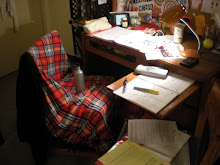I’m addressing a shortly discussed matter of interest in this post
Upon traveling through the Ring of Kerry in Southern Ireland a few weekends ago, I chatted with our tour guide from Galway. We passed a couple fields of windmills that generate energy for the towns, but she explained to me that most Irish people find these to be eyesores and not worth the small amount of energy they generate, in comparison to the energy Ireland needs and is trying to conserve.
I brought up how green and energy efficient Ireland seems to be, with its buildings only using heat/air at certain hours, many businesses keeping their indoor lights shut off, and stores charging people to use plastic bags. She explained to me a new solution in Ireland, potato plastic, that has been gaining interest for its green technology. Though green, this plastic is not at all energy efficient. Read on, homies.
Potato Plastic: Green, but not energy-efficient
This is the first time potato plastic has been used in a product which replaces conventional plastic. De Ster has replaced standard plastic ware with an ergonomical, high-tech, high-design product.
This product was that made in reaction to demands for more recyclable materials rather than disposable. And hey, potatoes are easy to farm and produce: the plan would initially seem to be brilliant.
http://www.ecogeek.org/content/view/810/
Support for bioplastics also takes into account the natural resources we use to produce plastics:
These new bioplastics are thus, made from plant starch and not crude oil and petroleum products. These bioplastics in turn, can be used to produce carpeting, upholstery fabric and recyclable plastic bottles, according to a report by the University of Maine’s Margaret Chase Smith Policy Center.
So if they don’t use up energy more energy, products are considered green.
http://www.ecofriend.org/entry/making-bio-plastics-from-potatoes/
A radically right-wing comment from Smithsonian.com on the bioplastics. Unfortunately, this dude has a point:
Corn Plastic [or potato plastic] is a neat experiment, but definitely not a good idea in tough times. The reality of world wide food shortages should make us all realize this is not the time to take farm land out of production to make energy inefficient substrates at the expense of feeding people.
In fact, we’re spending more money on energy to do so.
The man then goes on to say that PVC (plastics) when measured against bioplastics are not only more energy efficient, but also more socially responsible, cleaner, safer, and greener. The man seems to degenerate his validity with this, but at least he has the topic in his head. He brings up the arguments I’ve commonly heard.
http://www.smithsonianmag.com/science-nature/plastic.html
Final comment
Bioplastics entail the same issues as biofuel: they're not cost-effective or energy-efficient. It's a cool industry to learn about, but we're not green by turning to bioplastics to solve environmental issues. Negative 4 points for potato plastics.
